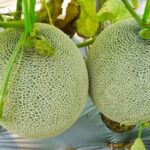Mulching has become a common practice in vegetable gardens, offering numerous benefits that aid in plant growth and overall garden maintenance. One increasingly popular mulching material that gardeners are turning to is coconut mulch. The question of whether coconut mulch is good for vegetable gardens arises due to its unique properties and advantages over traditional mulching materials.
Coconut mulch, derived from the fibrous husk of coconuts, is gaining recognition for its exceptional benefits in enhancing soil health and providing essential nutrients for plants. Its ability to improve water retention in the soil, reduce weed growth, and offer sustainability makes it an attractive choice for gardeners looking to enhance their vegetable gardens naturally and effectively.
In this article, we will delve into the advantages of using coconut mulch compared to other conventional options. From its nutritional benefits for plants to its sustainable nature and environmental impact, coconut mulch provides an array of benefits that can significantly contribute to the success of a vegetable garden. Stay tuned as we explore how coconut mulch can revolutionize your gardening practices and lead to bountiful harvests.
Benefits of Coconut Mulch
Coconut mulch is increasingly gaining popularity among gardeners as a sustainable and beneficial alternative to traditional mulching materials. Here are some key advantages of using coconut mulch in vegetable gardens:
- Nutritional Boost: One of the significant benefits of using coconut mulch is its ability to improve soil health by providing essential nutrients to plants. Coconut mulch is rich in potassium, which is vital for plant growth and overall development. Additionally, as the mulch decomposes over time, it releases these nutrients into the soil, promoting healthy root systems and vigorous vegetable growth.
- Water Conservation: Another advantage of coconut mulch is its excellent water retention properties. The fibrous texture of coconut husks allows them to retain moisture effectively, reducing the frequency of watering needed for your vegetable garden. This not only helps conserve water but also prevents soil erosion and promotes consistent hydration for your plants.
- Weed Control: Using coconut mulch can also aid in suppressing weed growth in your vegetable garden. The thick layer of mulch creates a barrier that inhibits weed seeds from germinating and competing with your vegetables for nutrients. This natural weed control method reduces the need for harmful herbicides and manual weeding, making maintenance easier and more environmentally friendly.
Nutritional Benefits for Plants
Enhancing Soil Health
Coconut mulch not only acts as a protective layer for the soil in vegetable gardens but also contributes to enhancing soil health. As the coconut mulch decomposes, it releases essential nutrients into the soil, enriching it and providing a conducive environment for plant growth. The natural breakdown of coconut mulch adds organic matter to the soil, improving its structure and promoting microbial activity. This results in healthier soil that can support the optimal growth of vegetables.
Providing Essential Nutrients
One of the significant advantages of using coconut mulch in vegetable gardens is its ability to provide essential nutrients for plant growth. Coconut husks are rich in potassium, which is an important nutrient required by plants for overall development and fruit production.
Additionally, coconut mulch contains other micronutrients like zinc, manganese, and iron, which are vital for ensuring the healthy growth of vegetables. By incorporating coconut mulch into the soil, vegetable plants can access these nutrients gradually as the mulch breaks down over time.
Promoting Root Development
The improved soil structure resulting from the use of coconut mulch also benefits vegetable plants by promoting root development. With better soil aeration and moisture retention provided by the coconut mulch, plant roots can grow more extensively and efficiently absorb water and nutrients from the soil.
This leads to stronger and healthier root systems that support robust vegetable growth and enhance the overall productivity of the garden. Therefore, utilizing coconut mulch in vegetable gardens is not only beneficial for soil health but also essential for providing plants with the necessary nutrients for optimal growth.
Water Retention
In addition to reducing water evaporation, coconut mulch also helps regulate soil temperature by providing insulation. This means that your vegetable plants are less likely to experience extreme fluctuations in soil temperature, which can stress them out and negatively impact their growth. By maintaining a more stable soil environment, coconut mulch contributes to healthier root systems and overall plant development.
Furthermore, the water retention capabilities of coconut mulch can significantly reduce the need for frequent watering in your vegetable garden. This not only saves you time and effort but also conserves water resources, making your gardening practices more sustainable in the long run. By using coconut mulch, you can create a more efficient and self-sustaining environment for your vegetables to thrive while minimizing water wastage.
| Key Benefit | Impact |
|---|---|
| Water Retention | Ensures consistent access to hydration for vegetable roots |
| Soil Temperature Regulation | Provides insulation and stabilizes soil temperature for healthier plant growth |
| Reduced Watering Needs | Minimizes water usage and promotes sustainable gardening practices |
Weed Suppression
Reducing Weed Growth
Weeds are a common nuisance in vegetable gardens, competing with plants for essential nutrients, sunlight, and water. Coconut mulch is an effective way to suppress weed growth due to its dense and fibrous nature. When applied properly, coconut mulch forms a barrier on the soil’s surface that inhibits weed seeds from germinating and thriving. This natural weed control method can save gardeners time and effort spent on weeding, allowing vegetables to grow healthily without interference from unwanted plants.
Minimizing Herbicide Use
By using coconut mulch in vegetable gardens, gardeners can reduce their reliance on herbicides to control weeds. Herbicides contain chemicals that may have harmful effects on the environment and human health. Coconut mulch offers a safe alternative by naturally smothering weeds without the need for chemical intervention. This organic approach not only promotes sustainable gardening practices but also contributes to creating a healthier ecosystem within the vegetable garden.
Promoting Soil Health
In addition to suppressing weeds, coconut mulch plays a vital role in improving soil health in vegetable gardens. As the mulch breaks down over time, it adds organic matter to the soil and enhances its fertility.
The decomposition process of coconut mulch enriches the soil with essential nutrients, promoting robust plant growth and increasing overall yields of vegetables. By using coconut mulch as a weed suppressant in vegetable gardens, gardeners not only maintain a clean growing environment but also nurture the soil for long-term productivity.
Sustainability and Environmental Impact
Coconut mulch is an excellent choice for vegetable gardens not only because of its benefits for plant growth but also due to its sustainability and environmental impact. Unlike traditional mulching materials that may be sourced from non-renewable resources or contribute to deforestation, coconut mulch is a byproduct of the coconut industry. The use of coconut husks for mulch reduces waste and promotes a circular economy by repurposing a natural material that would otherwise be discarded.
Furthermore, the production process of coconut mulch typically involves minimal processing and chemicals, making it a more environmentally friendly option compared to synthetic or chemically treated mulches. This means that when you use coconut mulch in your vegetable garden, you are making an eco-conscious choice that aligns with sustainable gardening practices. Additionally, since coconut husks are biodegradable, they break down over time and enrich the soil with organic matter, contributing to long-term soil health.
In terms of water conservation, coconut mulch is known for its excellent moisture retention properties. By helping the soil retain water for longer periods, coconut mulch reduces the need for frequent watering in vegetable gardens. This not only saves time and effort for gardeners but also promotes water efficiency by minimizing water wastage. In this way, using coconut mulch can have a positive impact on both your garden’s sustainability practices and its overall environmental footprint.
| Benefit | Impact |
|---|---|
| Reduced waste | Promotes circular economy |
| Biodegradable | Enriches soil with organic matter |
| Water retention properties | Promotes water efficiency in gardening |
Application Tips
Coconut mulch is becoming increasingly popular among gardeners due to its numerous benefits for vegetable gardens. Here are some guidelines on how to properly apply and maintain coconut mulch in your own garden:
- Prepare the soil: Before applying coconut mulch, make sure to prepare the soil by weeding and loosening it to ensure optimal growth conditions for your vegetables.
- Layering: Apply a layer of coconut mulch around 2-3 inches thick around your plants, making sure to leave some space around the base of each plant to prevent moisture-related issues.
- Maintenance: Regularly check the moisture level of the soil under the mulch to ensure proper watering. If the mulch starts to dry out, simply add more water as needed.
Additionally, consider these tips when using coconut mulch in your vegetable garden:
- Supplement with nutrients: While coconut mulch does provide some nutritional benefits for plants, it may be beneficial to supplement with organic fertilizers or compost to ensure that your vegetables receive all essential nutrients.
- Monitor weed growth: Keep an eye out for any weeds that may still manage to grow through the coconut mulch. Remove them promptly to prevent competition for nutrients and water.
- Rotate regularly: To prevent soil compaction and depletion of nutrients in specific areas, consider rotating your crops every season and adding fresh coconut mulch accordingly.
By following these application tips and maintenance guidelines, you can make the most out of using coconut mulch in your vegetable garden, promoting healthy plant growth and sustainable gardening practices.
Conclusion
In conclusion, it is evident that coconut mulch is a highly beneficial and sustainable option for vegetable gardens. Its numerous advantages over traditional mulching materials make it an attractive choice for gardeners looking to improve soil health, conserve water, suppress weeds, and reduce environmental impact. The nutritional benefits provided by coconut mulch contribute to enhanced plant growth and overall garden productivity.
One of the standout features of coconut mulch is its exceptional water retention properties, which can significantly decrease the need for frequent watering in vegetable gardens. This not only saves time and effort for gardeners but also conserves water resources in an eco-friendly manner. Additionally, the ability of coconut mulch to suppress weeds effectively creates a healthier growing environment for vegetables by minimizing competition for essential nutrients.
Frequently Asked Questions
Can You Use Coco Coir as a Mulch in Vegetable Garden?
Coco coir can definitely be used as a mulch in a vegetable garden. It helps retain moisture, suppresses weeds, and provides insulation for the soil which can benefit the growth of vegetables.
What Are the Pros and Cons of Coconut Coir Mulch?
The pros of using coconut coir mulch include its ability to retain moisture well, reduce the need for frequent watering, and its eco-friendly nature as it is a sustainable byproduct. However, some cons to consider are its high salinity levels which may require rinsing before use and its initial cost compared to other mulching options.
Is Coconut Coir Good for Vegetable Garden?
Coconut coir can be beneficial for vegetable gardens due to its ability to improve soil structure, retain moisture, and provide aeration to the roots of plants. It is also organic and environmentally friendly, making it a good choice for sustainable gardening practices.

If you’re looking to get into vegetable gardening, or are just looking for some tips on how to make your current garden better, then you’ve come to the right place! My name is Ethel and I have been gardening for years. In this blog, I’m going to share with you some of my best tips on how to create a successful vegetable garden.





